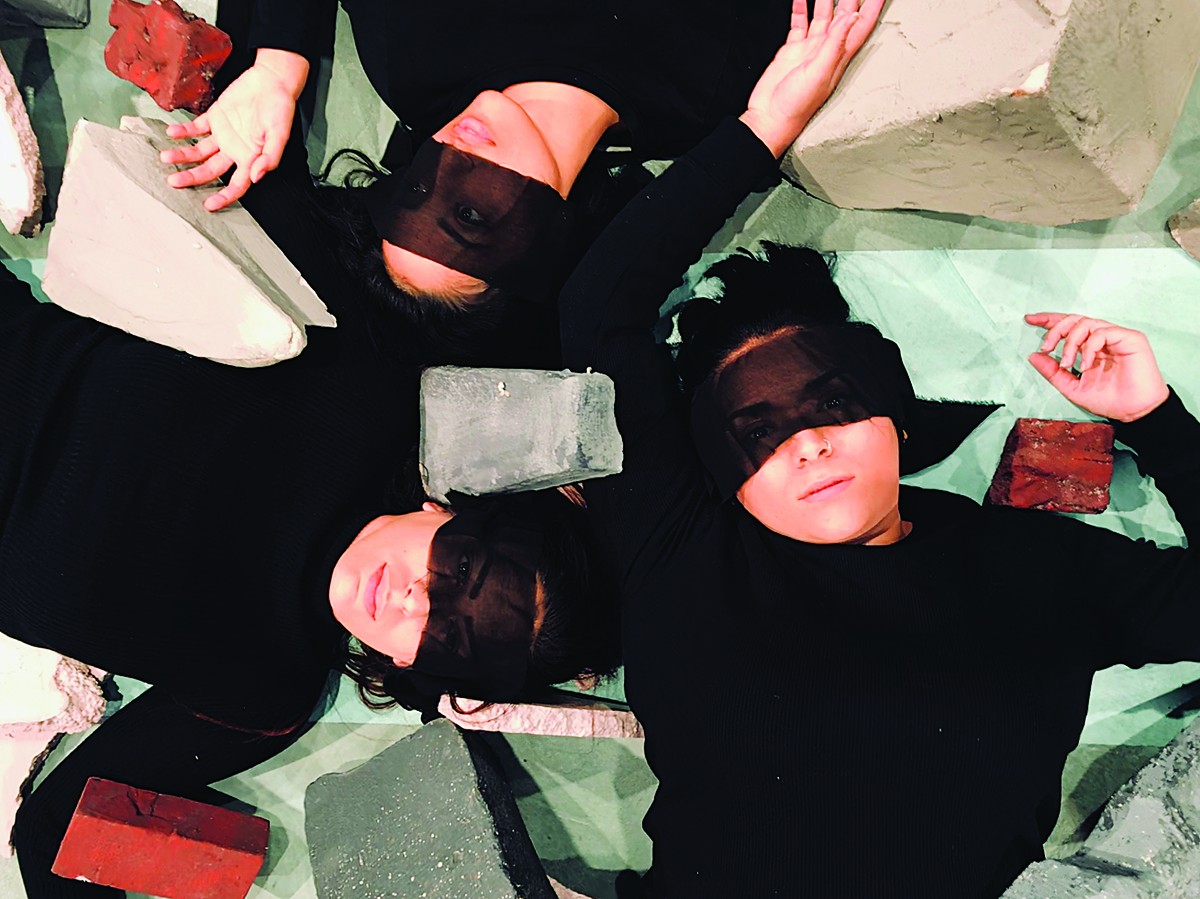
Theater-makers keep staging ancient Greek dramas not only because those old “goat songs” (tragedies) are as applicable to our current events as ever, but also because there’s a chorus. Figuring out how to integrate a clump of people into the unfolding action, while making the many speak as one, is an experimental-theater nerd’s ultimate challenge.
With The Trojan Women, Euripides went a step further by making the chorus the title character. But the 415 B.C. production only came in second for best tragedy in all of Greece that year. Why? The brilliant anti-war piece dared to put the victims of Greek war-mongering onstage in a highly empathetic fashion.
In a diabolical move, the Greeks faked a peace treaty and gifted Troy with a colossal wooden horse secretly filled with an army, who waited until the Trojans were so drunk from celebrating the end of 10 years of war they were easy to slaughter. The play begins the next dawn.
Ellen McLaughlin’s 1995 adaptation, now onstage at Saddleback College through Sunday, was created at the Balkan War’s end, with refugees from Albania and Yugoslavia in the original cast. I intended to just peruse a PDF of the script, but I read it through to the end. McLaughlin’s language is spare and universal; it vibrates with immediacy. “Another war has ended,” Poseidon says, taking a last look at Troy and its sleeping women. “When will the next begin?”

“This play is as relevant now as ever,” says director Olivia Trevino, adding that there’s “no sign it ever won’t be.” What with 65.6 million displaced right now, and countless more since Troy was sacked. Drawn to stories that focus on war’s aftermath—including Trojan Barbie at the Garage Theatre—Trevino’s production evokes ancient times as well as the future. “The draping of the costumes could be ancient Greece or Star Wars,” says the teaching artist. “There’s no hard reference. . . . It could be us; it could be the future of us.”
The strewn survivors sleep among the stone, cement and synthetic rubble. Along with Queen Hecuba is an artist who paints fine drawings on slender vases, a gossip, an herb-seller and a carrier of goats’ milk. The chorus begins a shared dream of home, a day-in-the-life celebration of the city that the sea god thought the best in the world. But then they wake up and prepare for lives as exiles.
Andromache is determined to face her future as concubine to the son of her husband’s murderer. “I will find a way to love life,” she declares. “Even in slavery. Even in bondage.” Her resolve is tested. Hecuba confronts Helen.
Enter Cassandra, who sees the future but isn’t believed—a curse put on her when she refused the sexual advances of Apollo. Ring a bell? It does for #metoo. She is thrilled to foresee her fiery end because the King of the Greeks burns up with her.
To distract themselves from all the dread, the women sing an ecstatic song of the exquisite horse, describing the previous night’s revels when they danced to instruments that hadn’t been played since the violence began a decade before. In rehearsal, Trevino had the chorus work with an image of a six-headed Hydra, “one being, one consciousness expressing the story.” The six actresses, representing the levels of Troy society, memorized all the chorus lines, even if they wouldn’t speak them in performance, so they could better imagine all that happens, happens to them all.
“Troy!” they say. “We will track your ashes throughout the world.” Sixty-five million footprints and counting.
Is The Trojan Women the greatest of anti-war dramas? Maybe. Mother Courage is a contender. But who cares? The more anti-war, anti-greed, anti-totalitarian plays, the better.
The Trojan Women at the Studio Theatre at Saddleback College, 28000 Marguerite Pkwy., Mission Viejo, (949) 582-4656; www.saddleback.edu/arts. Thurs.-Sat., Nov. 2-4, 7:30 p.m.; Sun., 2:30 p.m. $10-$15.

Lisa Black proofreads the dead-tree edition of the Weekly, and writes culture stories for her column Paint It Black.

